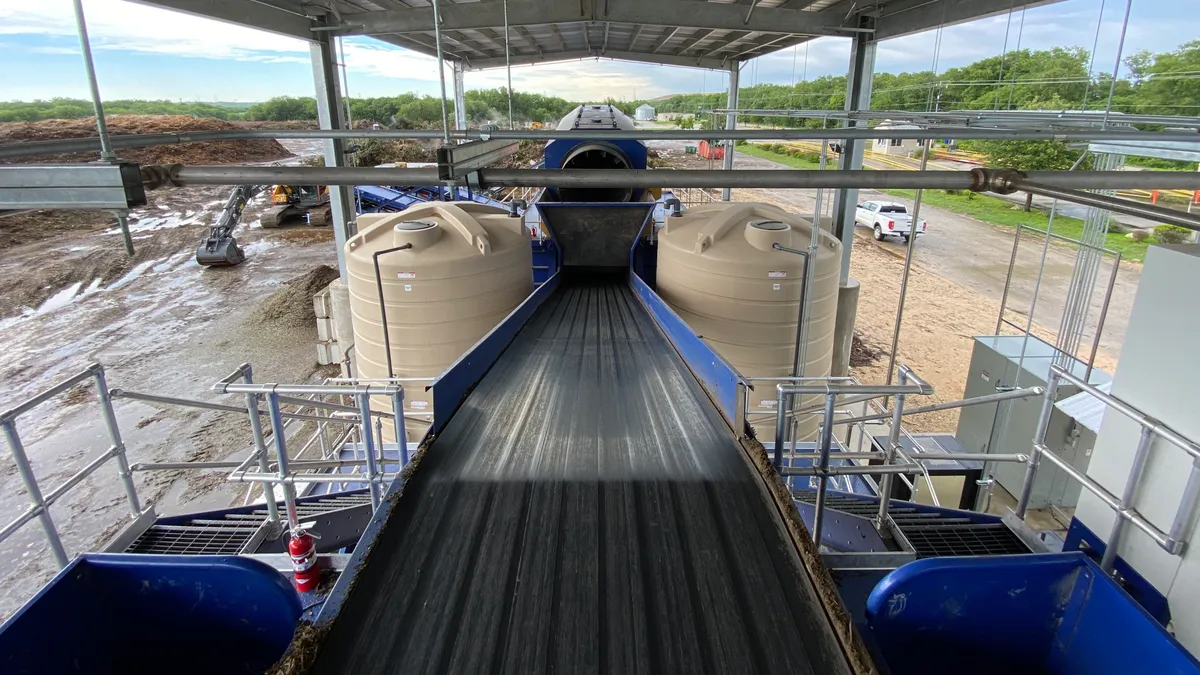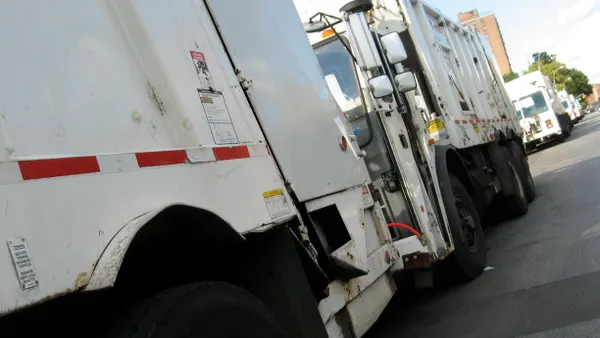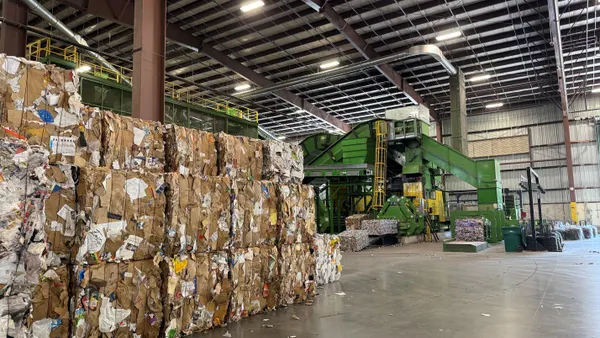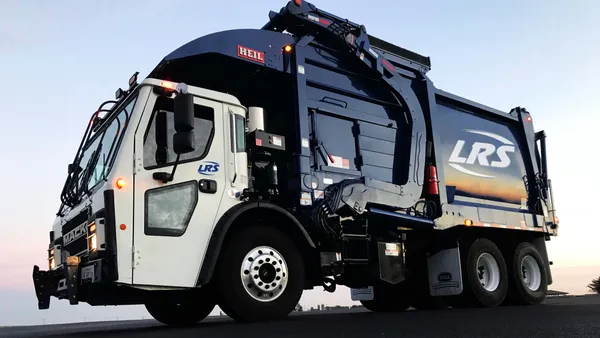Dive Brief:
- Generate Capital, a sustainable infrastructure firm and anaerobic digester operator, recently acquired a majority stake in South Carolina-based composter Atlas Organics. Financial terms were not disclosed, but this marks a full exit for Atlas' prior major investors.
- Atlas will continue to operate as a distinct entity within Generate, though the two expect to look for opportunities to site complementary composting and digestion infrastructure. Generate intends to invest at least $200 million in expanding beyond Atlas' current portfolio of composting facilities in the next few years.
- Atlas also announced further expansion on Tuesday, with the acquisition of Bay Mulch and Charlotte Organix in Florida. This adds three composting sites in the Florida communities of San Antonio, Plant City and Placida to the company's growing presence in the state.
Dive Insight:
As investment pours into organics recycling projects, Generate is taking a unique position by scaling up both compost and anaerobic digestion (AD). Most North American operators currently specialize in one area, but Generate believes it can gain more ground by combining approaches.
"There’s synergy both on the feedstock side as well as on the management of byproduct side," said Bill Caesar, president of Generate’s waste-to-value operations. "We have customers who are located in places where we don’t have ADs, or ADs don’t make economic sense, and we thought this would be a great way to be able to offer them a solution."
Caesar sees big potential for Atlas "to leverage Generate’s municipal contracts and customers and relationships" and gain new business, while also helping capture a larger share of material. For example, yard waste is better suited to composting whereas liquid organics are better suited for digestion. Generate sees further potential for Atlas to compost digestate from its AD facilities, as much of that material is currently land-applied. Generate is also developing a separate digestate management project in Washington that is in the early stages.
Generate currently processes an estimated 250,000 tons of material per year at multiple AD facilities in areas such as New York, Michigan and Ontario, Canada. Generate's waste-to-value division is part of a larger, California-based sustainable infrastructure company that was founded in 2014 and has expanded through a mix of new development and acquisitions. It now ranks alongside Vanguard Renewables, Anaergia and Bioenergy Devco as one of the larger AD operators.
Currently, Generate's AD and Atlas' compost site locations are not near each other, but that is likely to change over the coming years as new facilities are constructed or acquired. At the time of the Generate transaction, the Atlas portfolio included eight total facilities across Florida (including an acquisition in Tampa last year), North Carolina, South Carolina, Tennessee and Texas. Last year, the company processed more than 351,000 tons of material and sold more than 116,000 cubic yards of compost and other products.
Atlas was also recently awarded a contract to build, operate and own a new composting facility for the Salinas Valley Solid Waste Authority in California. The company won out over more established competitors in a procurement process that included WeCare Denali, Agromin and Zanker Recycling.
As jurisdictions in that state ramp up to meet organics recycling requirements under newly effective law SB 1383, Atlas co-founder and CEO Joseph McMillin sees "a pretty large opportunity for development of new infrastructure in California in partnership with municipalities."
At the same time, he said Atlas' original base is in states that don't have food scrap recycling mandates and expects there will be potential to capture more feedstock regardless of policy drivers. AD operators and others have seen a wave of new investment in recent years as large businesses and other generators look for ways to meet their sustainability goals by reducing greenhouse gas emissions from waste disposal.
"Our goal is to become the largest organics recycling company both in terms of quality and quantity of service across the nation," said McMillin. "We can make as many laws as we want to, but if we don’t think about the infrastructure that needs to be put into place to handle volumes at the end of the day we’re setting up ourselves for failure."
Atlas has also grown interest among commercial and residential clients by offering collection services in certain parts of the Carolinas and Tennessee. McMillin and Caesar said some collection expansion for Atlas is possible, but it will not be their primary focus.
While food waste recycling mandates are still less common at the state level, longtime yard waste diversion policies are more prevalent and executives see it as another area of opportunity. McMillin said existing yard waste facilities could be among potential acquisition targets.
Atlas has scaled up substantially since it was co-founded by McMillin and Chief Operating Officer Gary Nihart in 2015. The company has grown with an estimated $24.65 million in backing from groups such as Venture South, Closed Loop Ventures and Spring Lane Capital. The company has also gained attention for its use of robotics and artificial intelligence to catch contaminants on a pre-processing line at a recently opened facility in San Antonio, Texas, as detailed in a recent Waste Today profile. Atlas anticipates outfitting at least two more facilities with that technology this year.
Since its founding, Atlas has become one of the largest composters in the U.S., following WeCare Denali (whose parent company was acquired by a private equity firm in 2020), Waste Management and Republic Services.
Caesar, who was CEO of WCA Waste before its sale to GFL Environmental in 2020, said the goal for Generate's newly expanded organics recycling platform is to be an infrastructure asset rather than a direct competitor to the solid waste sector.
"We’re going to be partnered. In fact, a lot of food waste that we get today at our digesters in New York comes through large publicly traded waste companies that are doing what their customers want them to do," he said. "It’s not a competition at all. I think we are a resource to them."













